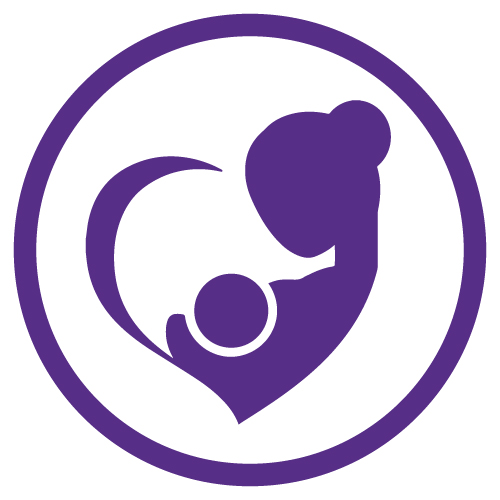 GOLD Learning Speakers
GOLD Learning Speakers


Zainab Yate, BSc, MSc, Author
- Speaker Type: GOLD Lactation 2017, Lactation and Adversity: Addressing Challenges with Confidence Lecture Pack 2021, GOLD Lactation 2022, Ethics 2024
- Country: United Kingdom
Biography:
Zainab Yate is a Biomedical Ethicist, with a specialist interest in infant feeding. Zainab is Vice Chair and named qualitative lead on a paediatric flagged Research Ethics Committee Panel for the Health Research Authority (HRA) in the UK, reviewing research protocols for over a decade. Zainab's previous working background is in Public Health and Commissioning the National Health Service (NHS) in the UK. She had also been a volunteer breastfeeding peer supporter with the NHS for a number of years, is the owner-author of the resource site for mothers and healthcare practitioners on Breastfeeding / Nursing Aversion and Agitation and author of "When Breastfeeding Sucks".
CE Library Presentation(s) Available Online:
Breastfeeding / Nursing Aversion and Agitation (BAA) in breastfeeding mothers
Aversion to breastfeeding or agitation while breastfeeding is known to occur in some women who breastfeed while pregnant, or who tandem feed a newborn and a toddler. However, it is a little researched area, and the paucity of published literature around breastfeeding aversion and agitation reveals a significant gap in the literature. My presentation presents the findings of an exploratory online survey that sheds light on what appears to be a commonly experienced phenomenon of aversion and agitation whilst breastfeeding, which varies in form, severity and duration. BAA is characterised by feelings of anger or rage, a skin crawling sensation and an urge to remove the suckling infant, but can also be feelings of agitation and irritability whilst the infant is latched. Mothers who experience BAA still continue to breastfeed, but have feelings of guilt and shame about BAA and are often confused about having feelings of BAA. Research is needed to understand the reasons for BAA, its causes, triggers and strategies to minimize the experience in breastfeeding mothers.
Presentations:
28 | Hours / CE Credits: 26.5
| Viewing Time: 8 Weeks
Presentations:
1 | Hours / CE Credits: 1
| Viewing Time: 2 Weeks
Hours / CE Credits: 1 (details) | Categories:
(IBCLC) Education and Communication, (IBCLC) Maternal, (IBCLC) Psychology, Sociology, and Anthropology, Breastfeeding Complications
"Help! Breastfeeding Makes Me Feel Bad, Sad or Mad": Helping Breastfeeding Mothers Struggling With Negative Emotions
Breastfeeding can trigger particular negative emotions and intrusive thoughts, these can include experiencing the phenomenon of breastfeeding/nursing aversion and agitation, or having the medical condition of Dysphoric Milk Ejection Reflex. Mothers. These don't preclude having postnatal depression or postnatal mood disorders.
Understanding the nuances and variations in all these conditions and symptoms can lead to better referral, intervention and treatment for those struggling with negative emotions associated with breastfeeding. Being prescribed antidepressants when you have D-MER or Aversion will not always alleviate the symptoms or help the situation.
We cover the literature about when breastfeeding can make someone feel bad, sad or mad, and what we know can help alleviate these negative emotions so as a lactation specialist or health care professional you will become well adept at assessing, referring, signposting, supporting and treating those who struggle. The information and skills you will gain will particularly help in complex cases or cases where there seems to be a missing link.
Presentations:
6 | Hours / CE Credits: 6
| Viewing Time: 4 Weeks
Hours / CE Credits: 1 (details) | Categories:
(IBCLC) Education and Communication, (IBCLC) Psychology, Sociology, and Anthropology, Breastfeeding Complications, Maternal Anatomy & Physiology
Research Ethics & Infant Feeding: How to Utilise the Four 'D's of a Brief Assessment
Research ethics institutions protect the rights, safety, dignity, and well-being of research participants, and also have a duty to ensure ‘good’ research. Conducting poor research is unethical, and there are many studies in the field of breastfeeding and lactation that have been challenged when published, simply because their findings and results are, at best, incorrect. Proper definitions, project design and industry conflict of interest are important factors, and these can be critiqued and challenged at the ethical review stage.
Participants will learn how to use the method of the '4 Ds of a Brief Assessment' to scrutinise the research questions, definitions of words used, disclosures and even the research methodology to decide if a study will have both scientific and ethical merit in the field of breastfeeding and lactation. If you are a donor, an applicant, a manager or a researcher you need to be aware of the process of ethical review of research protocols, the possibility of specialist review, and also of how to sift through published studies that have questionable study designs, and the findings.
Presentations:
29 | Hours / CE Credits: 29.5
| Viewing Time: 8 Weeks
Presentations:
1 | Hours / CE Credits: 1
| Viewing Time: 2 Weeks
Presentations:
74 | Hours / CE Credits: 75
| Viewing Time: 52 Weeks
Hours / CE Credits: 1 (details) | Categories:
(IBCLC) Clinical Skills, Ethics for Lactation Professionals, IBCLC Using Research
Navigating the Future: Bioethical Challenges in Anticipated Integration of AI in Lactation and Breastfeeding Services
This presentation examines the impending integration of artificial intelligence (AI) in lactation and breastfeeding services, shedding light on bioethical considerations both in a hospital setting and private practice. Delve into fundamental principles shaping ethical frameworks in AI, anticipate potential dilemmas in future technology integration, and prepare for responsible data management. Zainab explores the development of ethical responsibilities for healthcare practices in the evolving landscape of lactation support. Join us for insights at the intersection of ethics and technology, shaping the compassionate future of breastfeeding services.
Hours / CE Credits: 1 (details) | Categories:










